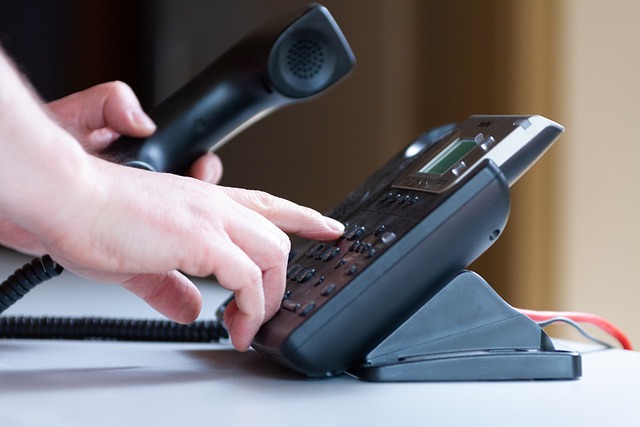In today’s digital landscape, businesses are increasingly relying on VoIP (Voice over Internet Protocol) systems for their communication needs. However, with the rise of VoIP usage comes the growing risk of cyberattacks targeting phone systems. Cybercriminals often exploit vulnerabilities in phone systems to gain unauthorized access, steal sensitive data, or disrupt operations. It’s crucial to take proactive steps to protect your business phone system from cybersecurity threats. In this article, we will explore practical tips to secure your phone system and safeguard your business from potential breaches.
1. Implement Strong Passwords and Multi-Factor Authentication
The first line of defense against cyberattacks on your business phone system is securing access with strong passwords. Many VoIP systems and phone services allow users to set up passwords for various accounts, including admin and user accounts. Ensure that you use complex, unique passwords that combine uppercase and lowercase letters, numbers, and special characters. Avoid using easily guessable information such as birthdays or company names.
To further enhance security, enable multi-factor authentication (MFA) where possible. MFA requires users to provide two or more verification factors (such as a password and a code sent to a mobile device) before gaining access to the system. This significantly reduces the risk of unauthorized access, even if a password is compromised.
2. Update Your Software Regularly
Cybercriminals often exploit vulnerabilities in outdated software to gain access to phone systems. To mitigate this risk, it is essential to regularly update your VoIP phone system and its associated software. Most software providers release regular updates to patch security flaws and improve system performance. Set up automated updates whenever possible, so you don’t miss important security patches.
Additionally, review the firmware of any IP phones you use and make sure they are up-to-date. Older devices may have vulnerabilities that are not addressed in newer software versions, leaving your system at risk.
3. Use Secure VoIP Providers
Not all VoIP service providers offer the same level of security. When selecting a VoIP provider, ensure they implement industry-standard security protocols like encryption to protect your calls and data. Look for providers that offer end-to-end encryption for voice and video calls, ensuring that your communications are safe from eavesdropping.
Another important consideration is the provider’s ability to detect and prevent Denial of Service (DoS) attacks and SIP (Session Initiation Protocol) attacks, which are common threats to VoIP systems. Choose a reputable provider with a track record of securing their services against cyber threats.
4. Implement Firewalls and Network Segmentation
A firewall is one of the most effective tools to protect your business phone system from external threats. By placing a firewall between your VoIP system and the internet, you can block unauthorized access attempts, filtering out malicious traffic before it reaches your network.
Network segmentation is another valuable strategy for protecting your phone system. By separating your VoIP network from other internal networks (such as your company’s data network), you can minimize the impact of a breach. If a hacker gains access to one network, they won’t automatically have access to the other, adding an extra layer of security.
5. Train Employees on Security Best Practices
Human error is one of the most significant cybersecurity risks. Employees may unknowingly expose the business phone system to threats by clicking on malicious links, falling for phishing scams, or using weak passwords. Regularly training employees on security best practices is crucial to preventing these vulnerabilities.
Some of the best practices to teach your staff include:
- Recognizing phishing emails and avoiding suspicious links or attachments
- Avoiding the use of personal or easily guessable passwords
- Reporting suspicious activity to the IT department immediately
Additionally, create clear protocols for using the business phone system, such as regularly changing passwords and locking devices when not in use.
6. Monitor and Audit Phone System Activity
Regularly monitoring and auditing the activity on your business phone system is essential to detect potential threats early. Many VoIP systems offer activity logs and reporting features that allow administrators to review call records, access logs, and any attempts to breach the system.
Pay attention to signs of suspicious activity, such as unusual calling patterns (e.g., international calls during off-hours), failed login attempts, or unexpected changes in account settings. Regular audits can help you spot issues before they escalate into larger security incidents.
7. Secure Remote Access to Your Phone System
As remote work becomes more common, ensuring that employees working from home or other locations have secure access to your business phone system is more important than ever. Implement Virtual Private Networks (VPNs) to encrypt remote workers’ connections, ensuring their communications are secure.
Ensure that all remote devices (such as laptops, smartphones, and tablets) are protected with strong security measures, including updated antivirus software and encrypted storage. If employees are using personal devices for work, establish clear policies for device security and provide training on best practices.
8. Limit Access to Sensitive Information
Control who has access to sensitive information within your business phone system. By limiting access to key personnel only, you can reduce the risk of internal threats and human error. Set up role-based access controls that restrict employees to only the features and data they need to perform their jobs.
This strategy also includes restricting access to certain system settings, such as account configurations or billing information, to authorized personnel only.
Conclusion: Protect Your Business Phone System and Ensure Secure Communication
Securing your business phone system from cybersecurity threats is an ongoing process that requires vigilance, the right tools, and employee awareness. By following these best practices, such as using secure VoIP providers, implementing firewalls, updating software regularly, and training your team, you can protect your business communications from cybercriminals.
If you’re looking for personalized advice on securing your business phone system, contact us today to discuss tailored solutions that meet your specific needs.

